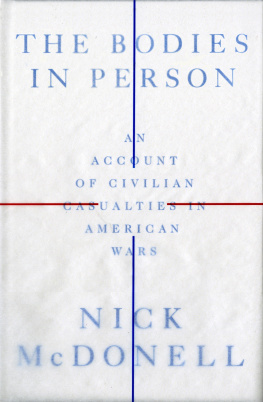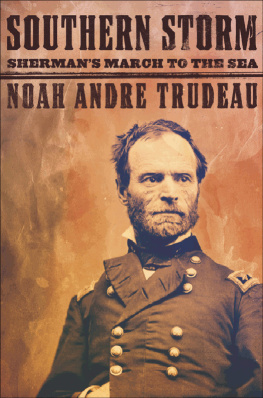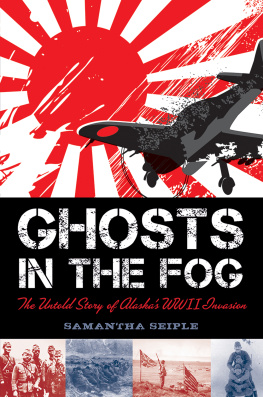Shermans Ghosts
ALSO BY MATTHEW CARR
Fortress Europe: Dispatches from a Gated Continent
Blood and Faith: The Purging of Muslim Spain
The Infernal Machine: A History of Terrorism
My Fathers House: In Search of a Lost Past

2015 by Matthew Carr
All rights reserved.
No part of this book may be reproduced, in any form, without written permission from the publisher.
Requests for permission to reproduce selections from this book should be mailed to: Permissions Department, The New Press, 120 Wall Street, 31st floor, New York, NY 10005.
Published in the United States by The New Press, New York, 2015
Distributed by Perseus Distribution
ISBN 978-1-62097-078-2 (e-book)
CIP data available.
The New Press publishes books that promote and enrich public discussion and understanding of the issues vital to our democracy and to a more equitable world. These books are made possible by the enthusiasm of our readers; the support of a committed group of donors, large and small; the collaboration of our many partners in the independent media and the not-for-profit sector; booksellers, who often hand-sell New Press books; librarians; and above all by our authors.
www.thenewpress.com
Composition by Westchester Book Composition This book was set in Adobe Caslon Pro
Printed in the United States of America
2 4 6 8 10 9 7 5 3 1
For Graham Usher, 19582013
To realize what war is, one must follow our tracks.
WILLIAM TECUMSEH SHERMAN, 1864
Contents
Shermans Ghosts
On November 15, 1864, one of the most celebrated and controversial campaigns of the American Civil War began when sixty thousand Federal troops under the command of General William Tecumseh Sherman marched out of the burning city of Atlanta into central Georgia. Disregarding conventional military wisdom that an advancing army should not break contact with its line of communications and supply, Sherman had ordered his troops to evacuate the city they had only recently captured and sever the Western & Atlantic Railroad link that connected them to the Unions nearest supply depot at Chattanooga, Tennessee. Apart from the reduced provisions his soldiers carried with them, Shermans army was now dependent for its survival on what they could take from the local population in the hostile Confederate heartlands of the Deep South.
Shermans destination, though few of his soldiers realized it at the time, was the city of Savannah, three hundred miles away on the Atlantic coast, where he hoped to be resupplied by the Union Navy and then proceed northward into Virginia to assist his great friend Ulysses Grant, whose armies were locked in a brutal deadlock with Robert E. Lees Army of Northern Virginia at the Confederate capital, Richmond. But Sherman also had very specific strategic intentions regarding Georgia itself. For more than a month, Shermans army marched through the state known as the granary of the South, seizing or destroying vast quantities of food and provisions, demolishing and burning public and private property, and leaving a trail of devastation fifty to sixty miles wide. On December 21, Shermans army captured Savannah in a triumphant conclusion to the March to the Sea. In February the following year, Sherman led his army northward into South Carolina.
Here the destruction was more extensive and more explicitly punitive, as his soldiers burned and looted their way through the state that they regarded as the spiritual home of secession before moving on to North Carolina, where the march finally came to a halt in Goldsboro on March 23, 1865. On April 16, the Confederate general Joseph E. Johnston surrendered ninety thousand troops to Sherman at the Bennett Farm near the state capital, Raleigh, thus removing the last major Confederate army from the Civil War. By that time Shermans seven-hundred-mile rampage had already begun its transformation into a military legend. In the North, it was acclaimed as a strategic masterstroke that transformed Sherman into a national hero. In the South, Sherman was vilified as a brutal military destroyer, a nineteenth-century Genghis Khan who violated the principles of civilized warfare and chose to make war on civilians and noncombatants.
This image of Sherman as the Great Destroyer has been handed down to posterity and reinforced in films, such as The Birth of a Nation and Gone with the Wind, as part of the Lost Cause mythologies of Southern victimhood, which present Sherman as the iconic symbol of Yankee barbarity. Today Shermans army is still remembered throughout the South as the instrument of vengeful destruction described in the narrative voice-over spoken by Waylon Jennings in the Paul Kennerley song They Laid Waste to Our Land: With hate in their hearts, they moved in a line, cutting a scar through Gods blessed country fifty miles wide / Burning, looting and gutting our land like vultures.
Shermans sinister reputation is not confined to the Civil War. More than any military campaign in history, Shermans March
Shermans many admirers have taken a more positive view of the man and his achievements. Some have pointed out the discrepancy between his frequently extreme and intemperate pronouncements and his more restrained actions. Few generals are more quotable, and few of Shermans many aphorisms are more widely quoted than his famous extemporaneous insistence that war is all hell, more often rendered as war is hellan observation that has been endlessly repeated by politicians and soldiers as a justification for intensifying wars hellishness. Yet Shermans defenders have argued that Shermans campaigns of devastation were not total but a proportionate and relatively unbloody use of military force that was justified on military grounds. In a hagiographic biography written in the 1920s, the British military theorist Basil Henry Liddell Hart hailed Sherman as the unacknowledged genius of the Civil War, whose campaigns anticipated the Nazi blitzkrieg tactics in World II and their subsequent adaptation by General George Patton during his 1944 campaigns in Normandy. For Liddell Hart, Sherman was the first modern general, whose methods presented a less destructive alternative to the meat-grinding battles of World War I.
In his study The American Way of War, Russell Weigley described the Civil War as a transformative moment in U.S. military history, in which Shermans strategy of terror in Georgia and the Carolinas complemented Grants strategy of annihilation in Virginia.
In a personal journey along the route of Shermans marches in 1984, the Southern writer and journalist James Reston Jr. attempted to trace a line of descent between Shermans campaigns and the Vietnam War. For Reston, Sherman was the first general of modern human history to carry the logic of war to its ultimate extreme, the first to scorch the earth, the first consciously to demoralize the hostile civilian population in order to subdue its hostile army, the first to wreck an economy in order to starve its soldiers.
Generals who terrorize civilians and seize or destroy their property are not usually lionized for such actions. Napolons reputation was not enhanced by the brutal counterinsurgency campaigns waged by his armies in occupied Europe. The German and Japanese generals whose armies burned and destroyed towns and villages in the Soviet Union and China during World War II are generally regarded as war criminals rather than heroes, even in
Next page






